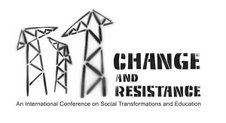Lynn W. Zimmerman, Ph.D.
Associate Professor of Education
Purdue University Calumet
In his Prison Notebooks Antonio Gramsci (1971) examined the role of intellectuals in a society. He contended that societies and intellectuals are interdependent, based on social, political, and economic needs. He goes on to say that the dominant group in a society needs intellectuals who support and maintain the needs of that group. He asserted that the complexity of a society can be determined by the breadth and depth of education and the amount of specialization required, stating that “school is the instrument through which intellectuals of various levels are elaborated” (p. 10). If that is the case, then each new regime must institute education reforms which contribute to the intellectual transition.
The purpose of this presentation is to examine data from a qualitative research project about education reforms in post-Communist Poland and Latvia. The project focuses on how pre-service English teachers in Latvia and Poland perceive their roles as future teachers in the particular context of their societies, in order to examine their expectations and perceptions in the socio-political context of their respective countries related to recent education reforms in each country. The narratives yielded four primary thematic categories: needs of society; educational philosophy issues; social changes and impact on education; and role of government in education.
The purpose of the project, whose participants were university students who have lived during the time of transition in their countries, is to look how the changes in society and education reflect shifts in their consciousness of themselves as future educators. According to Shea (1996),
One of the problems of living in a period of transition comes from the dissonance created by an episodic shift away from older meaning systems and our inability to react with any kind of sensibility or coherence to the fragmentary new symbol systems that strike our bewildered consciousness (p. 40).
This project seeks to determine how this dissonance manifests itself, and how the participants, as university students wanting to become educators themselves, fit into Gramsci’s (1971) strata of intellectuals.
On the societal level, the political and economic shifts in both countries has decreased the need for vocational education to train workers for industry, and brought about a need for more academic education to teach citizens how to live in a democratic society and how to work in a service-directed economy (Bollag 1999; Pachocinski 1997; Kwiek 2001; Soros Foundation 2001; Hamot 1998; Zachariev 1999). There is also the need for the knowledge and skills in order to participate in a unified Europe (Snoek et al 2003; Kwiek 2001; Scott 2002). Philosophically, there has been a shift away from the narrow and instrumental role that education played under the previous system to a role that is meant to promote social, political, cultural, and vocational competencies that are necessary for the individual to carry on a successful life individually, socially, and globally (Pachocinski 1997, p. 8).
These changes highlight what Eisner and Vallance (1974) refer to as a curriculum which recognizes that “individual development and the quality of the social context are interdependent” (Eisner and Vallance 1974, p. 11).
The new economic and political systems in Latvia and Poland created a need for a shift in curriculum development, moving away from the essentialist education of the past which focused on learning specific knowledge and skills to a more progressive curriculum which recognizes that learning is dynamic and which focuses on the learner. This study sheds some light on the effect that the reforms are having on education in both countries, and how the reforms reflect and inform the intellectual transition in the new regimes.
Subscribe to:
Post Comments (Atom)

No comments:
Post a Comment